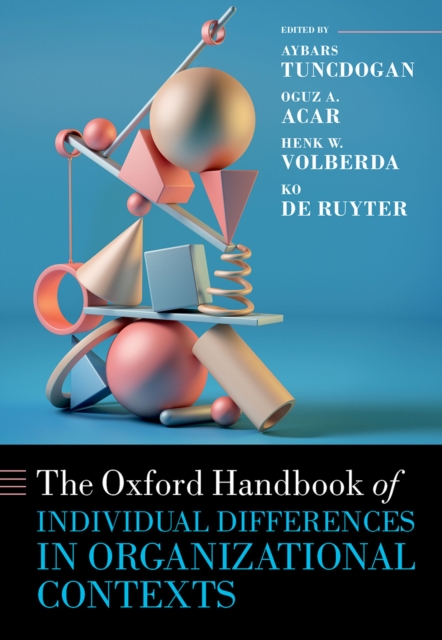
The Oxford Handbook of Individual Differences in Organizational Contexts PDF
Part of the Oxford Handbooks series
Description
Individual differences represent one of the oldest research areas within psychology and serve as the 'nature' component critical for understanding human behaviour.
This domain's constructs have long been applied in organizational spheres, including organizational behaviour, organizational psychology, managerial psychology, personnel psychology, leadership, and management.
As a result, there exists a vast body of literature exploring the role of individual differencesin organizational settings. The Oxford Handbook of Individual Differences in Organizational Contexts reviews the individual differences, paying attention both to psychological differences (e.g., personality traits, dark personality traits, intelligence types, self-monitoring, chronic regulatory focus) and biological/physiological differences (e.g., sex, age, facial morphology, genetic differences, neurological differences).
In doing so, it serves two purposes. First, it aims to help decrease fragmentation in thefield, and facilitate discussions among different streams of research within this literature.
Secondly, it aims to render this literature more accessible to academics and students wishing to deepen their understanding of individual differences. Comprising twenty-six chapters authored by fifty-seven esteemed academics, this book facilitates readers in comprehending the key findings, questions, and future research areas of individual differences research in organizational contexts.
This book can be of interest also to practitioners that need a deep understanding of individual differences, such as HR managers and recruiters.
Information
-
Download - Immediately Available
- Format:PDF
- Publisher:OUP Oxford
- Publication Date:15/02/2024
- Category:
- ISBN:9780192651631
Information
-
Download - Immediately Available
- Format:PDF
- Publisher:OUP Oxford
- Publication Date:15/02/2024
- Category:
- ISBN:9780192651631










